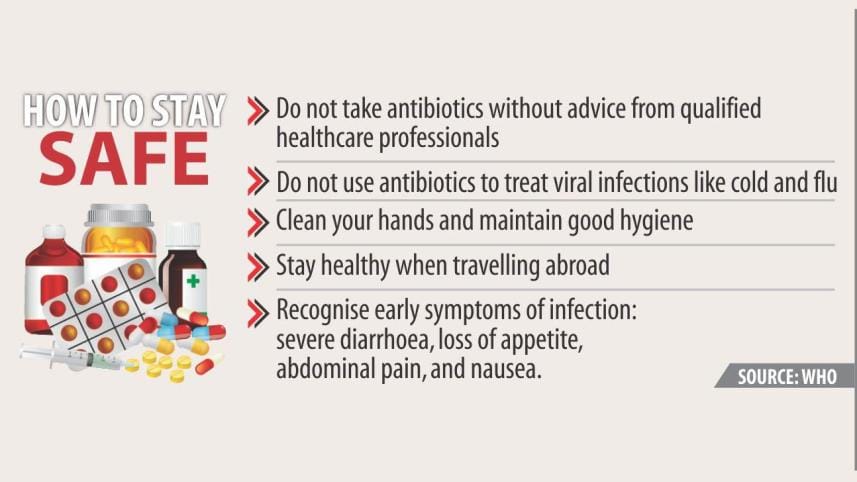Overuse of antibiotics creating resistance

The misuse and overuse of antibiotics is causing a rise to antimicrobial resistance (AMR) amongst patients, particularly in intensive care units (ICUs) of hospitals, where fatalities are up by as much as 70 percent. The World Health Organization linked the spread of "superbugs" or AMR to the excessive use of antibiotics by sick patients in ICUs. Leading health experts in the country have warned that the tendency of overconsumption and improper consumption of antibiotics over the last decade (2010-2018) is that patients are simply not responding to drugs and the number of deaths is rising. According to an analysis by the Deparment of Microbiology and Immunology at Bangabandhu Sheikh Mujibur Rahman University, 6.5 percent patients were resistant to superbugs in 2010 and this percentage increased to anywhere between 11 and 14 in 2018. Health practitioners blame a number of reasons for this. Poor treatment adherence, non-therapeutic use of antibiotics for fattening of farm animals, rising tendency of self-medication and, of course, over-the-counter sale of antibiotics are to blame for this situation.
The fact that the pharmaceutical industry is now worth Tk 22,000 crore where 18 percent of sales come from antibiotic drugs, also points to a tendency of "indiscriminate use of antibiotic drugs" being prescribed. This is indeed supported by a 2015 study conducted by four Bangladeshi researchers on 1,500 patients, a third of whom had been prescribed antibiotics by unauthorised doctors. When we take into account that AMR bacteria can be transmitted to humans through livestock, the situation becomes more serious because the poultry and fisheries industry gets fed 19 types of antibiotics, but there is no authority to oversee how much of it is overprescribed.
Health experts advocate that the government must come up with a national policy to govern the use of antibiotics in the health sector. Without a policy in place, it will be increasingly difficult to counteract the harmful effects that indiscriminate use of antibiotics is causing to humans, and no party can be held liable for the public health hazard caused.



 For all latest news, follow The Daily Star's Google News channel.
For all latest news, follow The Daily Star's Google News channel.
Comments